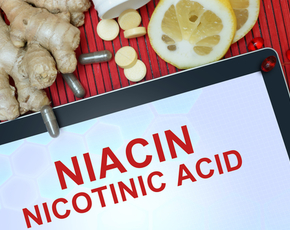
Jump to
Short answer
Acupuncture is not bad for you. It is an excellent alternative to mainstream prescriptions or surgeries.
Long answer
Acupuncture is a holistic ancient practice used for healing, immunity, fertility, addiction, depression, anxiety, pain relief, reduction of inflammation, relaxation, and much more. It considers the whole person, focusing on both the physical and psychological aspects of the individual. A component of traditional Chinese medicine, (TCM) Acupuncture has been used successfully for over 3000 years, in conjunction with herbs.
The treatment involves the insertion of fine needles into strategic points of the body to restore the balance of energy. The needles are actually so small that you will likely feel nothing more than a slight pressure. According to Chinese medicine, a healthy person is a balanced person, and when the body gets out of balance, that is when pain and discomfort is experienced. The practice is centered greatly around the eradication of inflammation in the body, which is responsible for numerous ailments. Acupuncture is officially recognized by the National Institutes of Health and the World Health Organization (WHO).
Acupuncture works by balancing the Qi (Chi), or vital energy flow along 12 meridians in the body. These meridians could be compared to long highways carrying energy throughout the body. The 361 acupuncture points are where the flow of energy could become blocked or unbalanced.
Meeting with an acupuncturist is similar to talking to a detective. The TCM professional examines the tongue, pulse, complexion, eyes, and posture. For women, the menstrual cycle plays a large role in health, thus it is necessary to ensure that the cycle is healthy. An interview is typically conducted investigating into everything from your daily stress load to your bowels and urine color. He or she wants to know about the symptoms that led to the consultation, while going through a specific pattern of diagnostic tools to determine the person’s balance of yin/yang. The yin/yang forms the backbone of the theory of Traditional Chinese Medicine, and by focusing on where the Qi energy imbalance manifests itself. Once this is determined, the acupuncture orientation will lead the practitioner to a choice of select points.
The yin/yang refers to opposite forces in the body, and the goal in TCM is to create balance. If certain meridians are overfull, that would mean that the opposite ones are weakened and nearly empty. By inserting the needles the practitioner is able to manipulate the energy flow to balance the Qi. This healing process takes place over several sessions.
A successful acupuncture program should include a concoction of herbs to be taken daily. These herbs are complementary and essential to the holistic treatment. The acupuncturist will likely offer a meal plan that is helpful based on the specific area of inflammation or unbalanced Qi. Acupuncture can be dangerous if not administered by a trained professional.
Using principles of evidence-based research has been controversial and the results are varied. Some research leads to the conclusion that acupuncture can relieve pain, but other studies claim that the success of positive findings is due to the placebo effect. Most of the pain relief noted in studies has been short-term with acupuncture. However, it is important to keep in mind that if acupuncture were indeed found to be successful, it would be added to insurance plans and likely decrease the sale of prescription medications. Drug company lobbyists do not benefit from research favoring natural treatments, such as acupuncture. Additionally, if you stopped taking a mainstream prescription medication, you are likely to have diminished effects. Thus, the claim that the pain relieving effects of acupuncture are only short-term, are not a valid rebuttal against acupuncture programs. On the contrary, many people that have participated in a holistic acupuncture program have found satisfying results, lasting longer than the use of a narcotic pain reliever. Additionally, it cannot be denied that numerous families attempting to overcome infertility after numerous unsuccessful and expensive fertility treatments have quickly conceived after following an acupuncture plan. When available, a natural treatment is always better than a synthetic prescription medication.

Benefits
- pain relief
- depression/anxiety relief holistic healing and absence of inflammation
- immunity
- ceasing addiction
 Approved by
Approved by 














